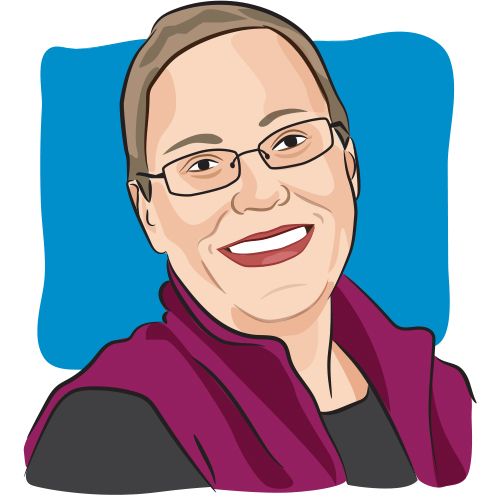4 Tips for People Newly Diagnosed With Cancer
I felt like I had to come back to life after hearing the word “metastatic.”

The day I learned I had stage 4 breast cancer, one of the first words the oncologist used was “metastatic.” She kept talking, but just like we are often told, I heard nothing. I experienced those minutes as empty of anything other than just sitting alone in space. The whoosh back into the present came suddenly, in the form of the oncologist laying out a plan.
I went home and looked up “metastatic” and after that, I looked up “palliative,” which was the word used to describe my future.
You can know nothing or everything, but either way, you will not be ready to hear you have a stage 4 cancer diagnosis.
Looking back, I know resources would have been available to me if I had known about them. Because breast cancer is way more often diagnosed as early stage, there is an abundance of information for those stages and all of it is framed with the idea that you will put cancer behind you — not that you’ll be living with this for the rest of your probably-foreshortened life.
Here are highlights from my personal journey toward supporting my life, my needs and my mental health after a stage 4 diagnosis:
Your doctor can be your ally much more easily if you are honest about what you are experiencing. And, added bonus, the sooner you open up, the sooner something can be done. This is not the time to keep hard stuff to yourself or to minimize what you’re experiencing, whether it’s physical symptoms or emotional struggles.
A circle of people who understand can help, regardless of where you find them. I didn’t join a support group, but I did start taking an exercise class for people with cancer. I didn’t need to talk, I just needed solidarity. Everyone is different. If you want to connect with others, there are countless ways both online and in real life. My go-to recommendations for people living with metastatic breast cancer include projectlifembc.com, the nonprofit members of mbcalliance.org like Living Beyond Breast Cancer and SHARE Cancer Support, and the FB group called “(Stage 4) Newly Diagnosed Metastatic Breast Cancer” which is moderated by experienced patient advocates.
Avoid information overload and be OK with telling people to keep their advice to themselves. I am a co-host of the patient-led podcast Our MBC Life (ourmbclife.org) and even I need to ration my listening to the episodes that matter most to me at a particular moment. In 2023, we did a terrific three-episode series specifically about being newly diagnosed that is worth a listen. If you’re not sure where to find good information, talk to your care team and visit reliable sources like the American Society of Clinical Oncologists website.
Put the pressure on hold whenever possible. Even with a stage 4 diagnosis, this is still your life and you are still you. The things and people you cared about yesterday are still there and your life has not come to a stop. Cancer is hard enough, so if you feel unwelcome or judged, by anyone including your doctors, your friends and family, and other cancer patients, know that you deserve better. It can be hard to make changes like finding a new care team or leaving behind a support group you had high hopes for, but looking after your physical and mental well-being is worth it. This path is yours alone, but you can travel it with people who truly love and support you.
For more news on cancer updates, research and education, don’t forget to subscribe to CURE®’s newsletters here.
FDA, Cancer Vaccine Updates and a Misguiding of Breast Cancer Treatment
February 5th 2024One cancer vaccine may still be years away from being available, a breast cancer test may be misguiding treatments for Black women and the review of two oncology regimens are being expedited by the FDA.
Listen